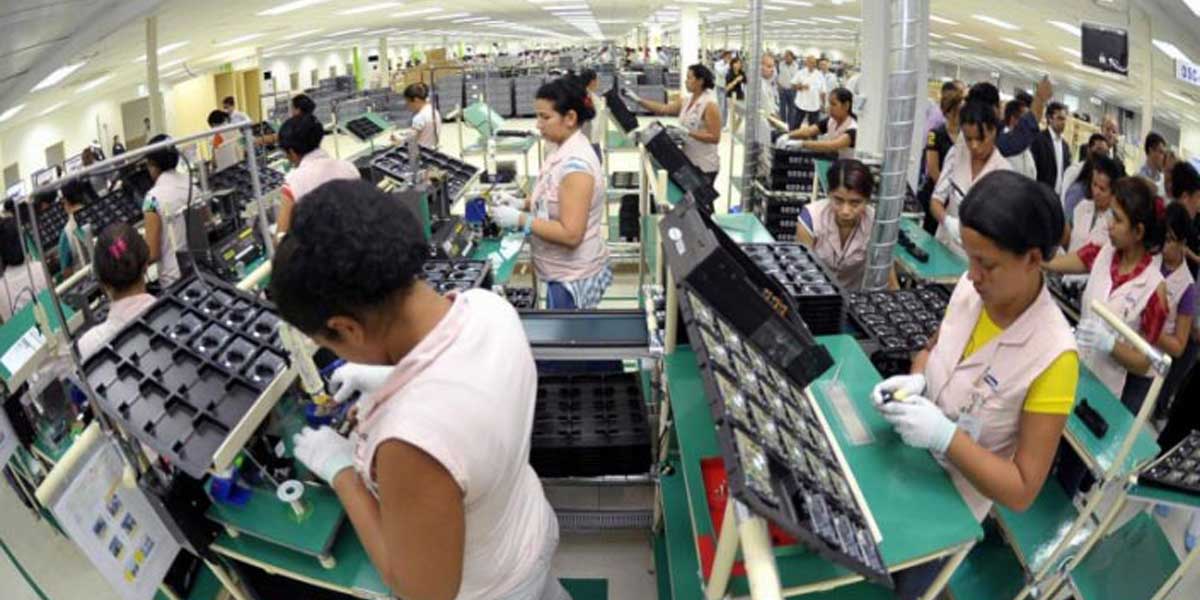

The Union Minister of Law and Justice, Electronics and Information Technology and Communications, Ravi Shankar Prasad has said that the future of electronics and smartphone manufacturing in India was vigorous, with the sector alone contributing $1 trillion to the economy by 2025.
“We have come a long way from just two smartphone factories in 2014 to 250 manufacturing factories today. By proper scaling of the manufacturing, the sector alone can contribute $1 trillion towards fulfilling the dream of achieving the $5 trillion economy,” said Prasad.
Prime Minister Narendra Modi led-National Democratic Alliance (NDA) government has targeted to make the country a $5 trillion economy by 2025. The minister made these observations at the session, ‘Digitalisation roadmap to support growth of the Indian economy,’ organised by the industry chamber, The Associated Chambers of Commerce and Industry of India (ASSOCHAM) during its foundation week on December 18.
Speaking about government policy, he said that the right initiatives made a marked difference in the output and growth of the sector.
“The Production Linked Incentive (PLI) scheme that we introduced to the sector during the Covid pandemic, attracted top-five global players to India as expected by us. And, also, the top five companies in India will be able to perform better. I am confident that these companies together will manage to produce mobile phones and accessories worth Rs 10 trillion in the next five years,” said Prasad.
He informed that out of that the exports figure would be Rs 7 trillion and the sector would generate an estimated 900,000 jobs, directly or indirectly.
About 600,000 direct jobs had already been created in the sector so far.
Talking about the future of electronics manufacturing in India, he said that by 2025 the country would manufacture 1 billion phones, 50 million television sets, 50 million hardware including laptops and tablets and other accessories.
“The idea is to make India a global hub of mobile manufacturing as India has talent, innovation and potential to be so,” he added.
The minister’s remarks notwithstanding, the central and state governments, however, will also have to ensure a safe environment for such manufacturers shifting their units from China to India. An alleged workers’ stir at the Wistron plant near Bengaluru on December 12 left the facility vandalised, reportedly causing losses to the tune of Rs 4.37 billion. The Taiwan-based contractor manufactures iPhone 7 and second-generation iPhone SE devices for Apple.
A preliminary inquiry into the incident has brought to light the role played by left-backed student unions in the violence.
“We aim to make India a top global nation in data refining and data innovation,” he observed.
On the issue of data security, he said that the government stood firm on its decision that data from the citizens should be used only with their consent.
“It is the fiduciary’s responsibility to use the data for the purpose for which it is been taken and not otherwise,” he warned.
“India should not compromise on its data sovereignty. As India is an emerging economy and there would be fierce competition to get hold of the data. Indians, therefore, should be able to utilise their creative minds to have edge and power play in this emerging data economy sector and establishing India as a global player in the world,” he stated.
He further said that the digital ecosystem in India would only work if the common people were made stakeholders.
“The technology like artificial intelligence (AI) should be used in areas like farming and healthcare, to benefit the people at large, and then only the ecosystem will survive,” he cautioned.
Prasad also spoke at length about inclusive digital India powered by technology and the role it had played during the lockdown. He said the government was looking at empowering ordinary citizens by promoting homegrown, low-cost digital solutions.